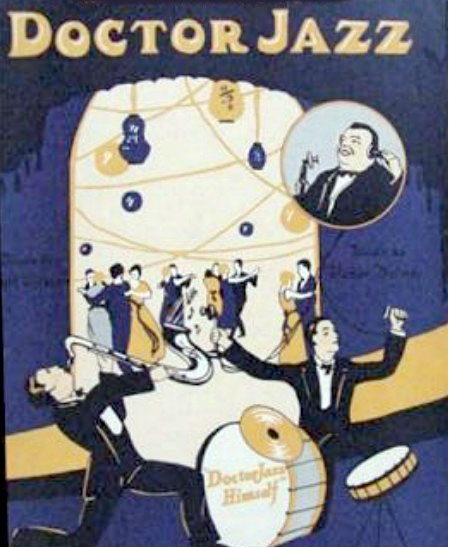
American Popular Song attained full flower in a half century span flanked by two World Wars with one devastating Great Depression thrown in between. The American public was in dire need of color and joy missing from their daily lives, and the great songwriters and performers of the age were just what the doctor ordered. On film and in song, the diagnosed malady was invariably Lovesickness and the prescribed treatment was (what else?) Love. Poverty, illness, unemployment, grief, war, despair: all too real for millions in those days. Romance, hope, optimism, humor, the realization of one’s dreams provided the welcome alternative, right there in the songs.
“I was a chronic ‘How’ve ya´ been?’/Then like a tonic, you blew in…”
Saturated with the metaphor of sickness & cure, American Popular Song’s greatest era is rife with medicinal/anatomical/therapeutic references all in service to Life and Love: “It’s Got To Be Love(It Couldn’t Be Tonsillitis),” Fever,” “Heartaches,” “I”ve Got You Under My Skin,” “If I Only Had A Brain,” “A Nose Full of Nickels,” “Jeepers Creepers,” “Love Potion Number 9,” “Button Up Your Overcoat,” “Young And Healthy,” “Adelaide’s Lament,” “The Physician,” “Black Coffee,” “Dr. Jazz,” “You’re Just In Love,” “Are You Having Any Fun,” “You Must’ve Been A Beautiful Baby,” “Accent-Tchu-Ate The Positive…”
How perplexing that as Americans have prospered over the last half century, mainstream popular music has degenerated to a place steadily hovering between stultifying monotony and vile rage. Out of a less affluent but richer past, the great films, songs, architecture are the proud remnants of a spirited age when wonderful melodies and smart lyrics heroically fended off grim reality. If songs reflect their time, then it was unquestionably a much healthier, life-positive era. Life still poses challenges, and of those songs, many of us still gratefully sing, “You’re the cure for what ails me/And you do me good!”
If you would like to engage Fred Miller for one of his Lectures-in-Song, please contact him directly at any time. For a full listing of all Lectures, click here.
Fred Miller’s Lectures-In-Song comprise a series of solo programs, each an historical, anecdotal and musical profile of some great personality or important aspect of American Popular Song. These Lectures are delivered by singer/pianist/narrator Miller at the piano, and each reflects his lifetime passion and appreciation for great music. He studied classical piano in his hometown of Albuquerque from ages 7-15 but early on gave up any notion of music as a profession. At that time, Fred assumed a musical career was either one devoted to the rigid discipline of classical music or being a freewheeling rock star, and he accurately decided he had no aptitude for either. However, at age 22, upon hearing Ella Fitzgerald sing Cole Porter, he found his calling and life’s mission.
Through the Seventies and Eighties, Miller studied and absorbed in minute detail the life and times and songs of nearly all the great American composers and lyricists who thrived during Broadway & Hollywood’s Golden Age between the two World Wars. In 1987, he founded Silver Dollar Productions in order to produce operettas, dramas, musicals and small cabarets. Silver Dollar Productions required ensemble casts, props, costumes and, most significantly, the challenges of publicity and selling tickets, and for a dozen busy years, the company presented an unbroken string of varied and highly lauded performances.
In 1999, Miller was simultaneously underwritten by both his local Hunterdon County Library and the Art Alliance of Philadelphia to present a series of six solo Lectures-In-Song, each devoted to one of the premiere Broadway/Hollywood songwriters: George Gershwin, Cole Porter, Irving Berlin, Richard Rodgers, Jerome Kern, and Harold Arlen.
In presenting history, biography and psychology while sitting at a piano singing the superlative songs of his heroes, Miller has found a single performing medium that utilizes most of his intellectual and musical passions.The list of Lectures-In-Song that began with six in 1999 is now more than seventy(and growing!), a joyful tribute to the boundlessly rich field of American Popular Song.
